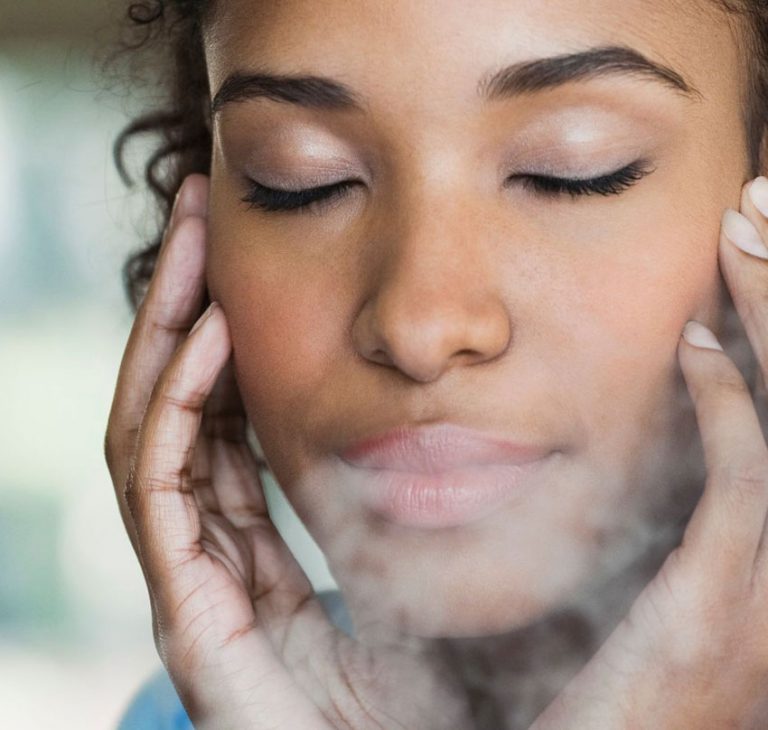Alternative treatment can help to reduce chances of inhaling COVID 19 Virus by purifying air any where anytime
Humidifier therapy adds moisture to the air to prevent dryness that can cause irritation in many parts of the body. Humidifiers can be particularly effective for treating dryness of the skin, nose, throat, and lips. They can also ease some of the symptoms caused by the flu or common cold.
However, overusing humidifiers can potentially worsen respiratory problems. It’s important to know how to use them correctly.

What can I use a humidifier for?
Humidity acts as a natural moisturizing agent that can relieve dryness. For this reason, humidifiers are often used for relieving:
- dry skin
- sinus congestion/headache
- dry throat
- nose irritation
- bloody noses
- irritated vocal cords
- dry cough
- cracked lips
You may be prone to these discomforts when the air in your home is dry. This is especially common during winter months or when an air conditioner is being used during the summer.

Types of humidifiers
The type of humidifier you choose depends on your preferences, budget, and the size of the area you want to add moisture to. There are five types of humidifiers:
- central humidifiers
- evaporators
- impeller humidifiers
- steam vaporizers
- ultrasonic humidifiers
Humidifier sizes
Humidifiers are often classified as console or portable/personal.
Console units are meant to add moisture to the entire house. They’re often very large, but usually have wheels so you can easily move them around. Console units are meant to add moisture to one room.
Personal (or portable) humidifiers are the smallest, and are the best choice if you need a humidifier while traveling.
Central humidifiers
Central humidifiers are built directly into your home’s air conditioning or heating unit. These are the most expensive types of humidifier, but they’re the best choice if you want to add humidity throughout the entire house.
Traditional humidifiers carry a potential risk of burns from the steam they emit. Central humidifiers don’t emit steam.
Evaporators
Evaporators blow moisture through a moistened filter. Fans power the unit and expel the humidity into the air from a single-unit system.
These are more affordable than central humidifiers, but the downside is that they only work in one room at a time. They may also expel too much moisture into the air. This can be problematic for people with asthma, as it raises the likelihood for mold growth.
Impeller humidifiers
Impeller humidifiers work with the help of rotating disks that run at high speeds. These units are often less expensive. They’re also among the most child-friendly devices, because they create cool mist and carry no risk of burns.
The downside is, like evaporators, they only work for single rooms. They can potentially cause breathing difficulties for people with allergies and asthma when they’re overused.
Steam vaporizers
Steam vaporizers are electrically powered. They heat water, and then cool it before expelling it into the air. These are the most inexpensive and portable humidifiers. You can purchase them at drugstores.
This type can cause burns, so it’s not the most kid-friendly.
Ultrasonic humidifiers
Ultrasonic humidifiers produce a cool mist with the help of ultrasonic vibration. The units vary in price, depending on the size you need for your home. Both cool and warm mist versions are available.
An ultrasonic humidifier — especially the cool-mist version — is a good choice if you have children.
Controlling humidity levels
- Adding humidity to the air may be beneficial, but too much humidity can cause health issues. High humidity levels can worsen respiratory problems and create uncomfortable dampness in the air. This can encourage the growth of:
- dust mites
- mildew
- mold
- harmful bacteria
Mayo Clinic recommends that humidity stay between 30 and 50 percent. A hygrometer can determine how much humidity is in your home. Some central humidifiers come equipped with hygrometers, but you can also find them at hardware stores.
Test the humidity daily, especially if someone in your household has allergies or asthma, sinus and many other respiratory issues .
